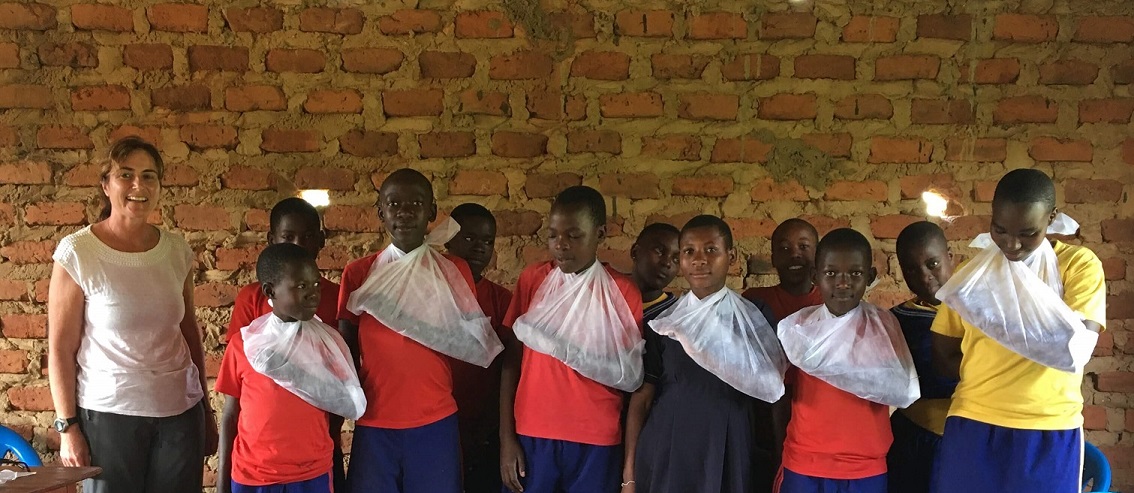
Written by Helen Pidd
Director, UKCRF Network &
Operational Director, NIHR Manchester CRF
July 2020
“Why do you want to be a nurse?”, “because I want to help people”
I cringe now remembering the 17 year old Helen giving this answer to an interview question of why I’d chosen nursing as a career choice. Although I did see nursing as a vocation, the answer I didn’t give because I thought it would jeopardise my chances, was, that I also saw nursing as a passport to working overseas and exciting opportunities. Getting married and having children seemed to make these ‘exciting opportunities’ a distant memory (holidays with 2 children is not quite the same thing). That was, until, as is so often the case, some people close to me got sick and I decided ‘life’s too short to wait’. So I applied for an NHS career break scheme and started to plan my 3 month sabbatical from work.
The planning stage was difficult, deciding what to do with ‘all that time’ but I knew that I wanted to travel, volunteer and have time for some personal development.
So on the 4th January 2020, I left Manchester with a very full rucksack destined for Uganda, Cambodia and Vietnam.
Uganda Health Clinics and Hospitals
I spent nearly a month in Uganda, where I traveled across the country visiting towns and villages and came to love the beautiful countryside and people that are Uganda.
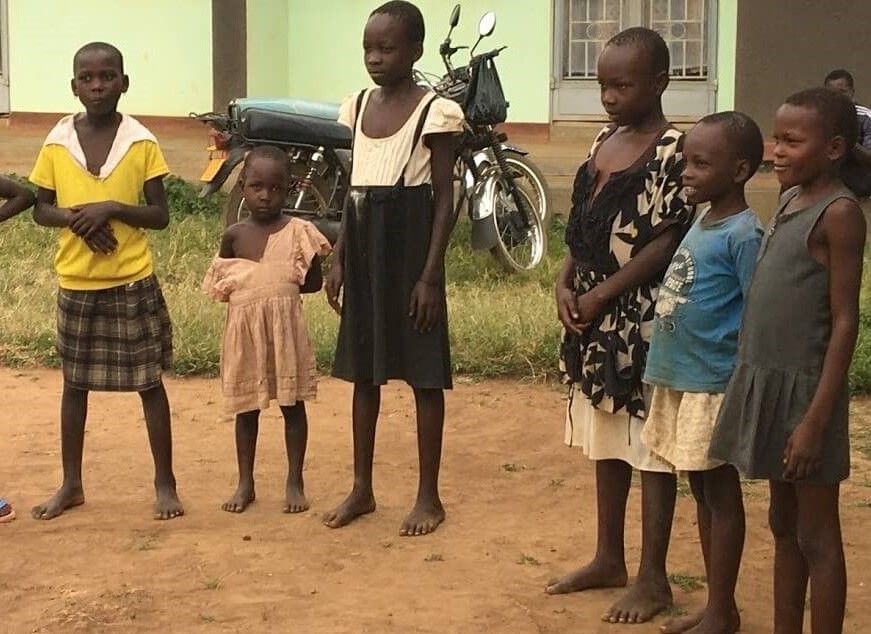

Much of my time was spent visiting Uganda health clinics and hospitals, learning about the challenges they faced from severe lack of resources, staff and basic necessities.
I spent two days in a health clinic working alongside a volunteer GP.

At the clinic the midwife explained that two days before I arrived, a baby had died during a very difficult delivery at night. They could only see using the torch from her phone because there was no electricity. Patients walk for miles to be seen and sit and wait for hours. Over the two days I saw 80 patients, mostly with illnesses that were entirely preventable.
unnecessary suffering
The chances of getting malaria are significantly reduced by using a mosquito net at night and cost around £1.00, but none of the families I saw had one. Several really sick young children needed hospital treatment but families initially refused to go based on the cost of transport. Luckily I had access to a vehicle throughout my stay, so this doubled up as ambulance transport for many clinic and hospital visits I went on.
Several times during the very hot, dusty clinics, I needed to ‘escape’ to the outside and get some breath and water, because the unnecessary suffering due to poverty, lack of resources and education is overwhelming. It certainly makes you very appreciative for the health and welfare systems in the UK.
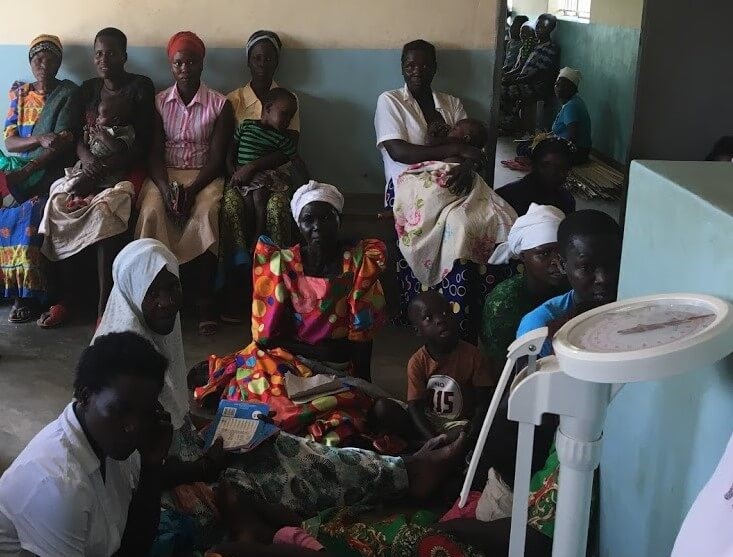
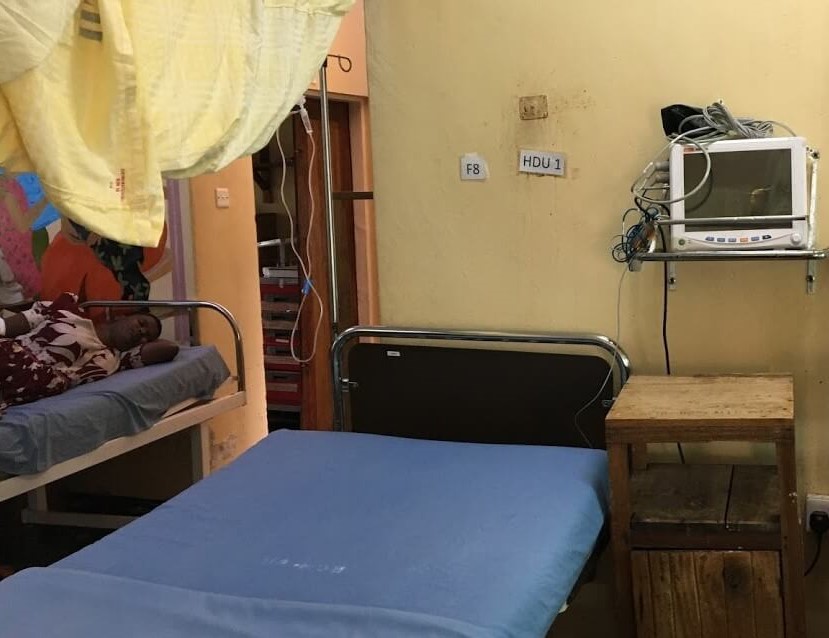
IMPROVING HEALTHCARE

I also saw wonderful initiatives being implemented that are really improving the health care for people.
One example is the hospital that admits pregnant women about a month before the due date to support them during pregnancy and delivery.
They can also learn skills like sewing and basket weaving that would enable them to make a living when they go back to their homes.
The people of Uganda are wonderful and showed me much generosity and kindness; they opened up their homes for me to visit and shared what little food they had with me. It was an unforgettable experience and I hope to visit again someday.
My plan was to share some of my experiences with you at the UKCRF Network Conference this year and start to explore how the CRF community might become involved in some of the amazing work that is happening. However sadly due to COVID-19, this will not be the case, hence me writing this blog.
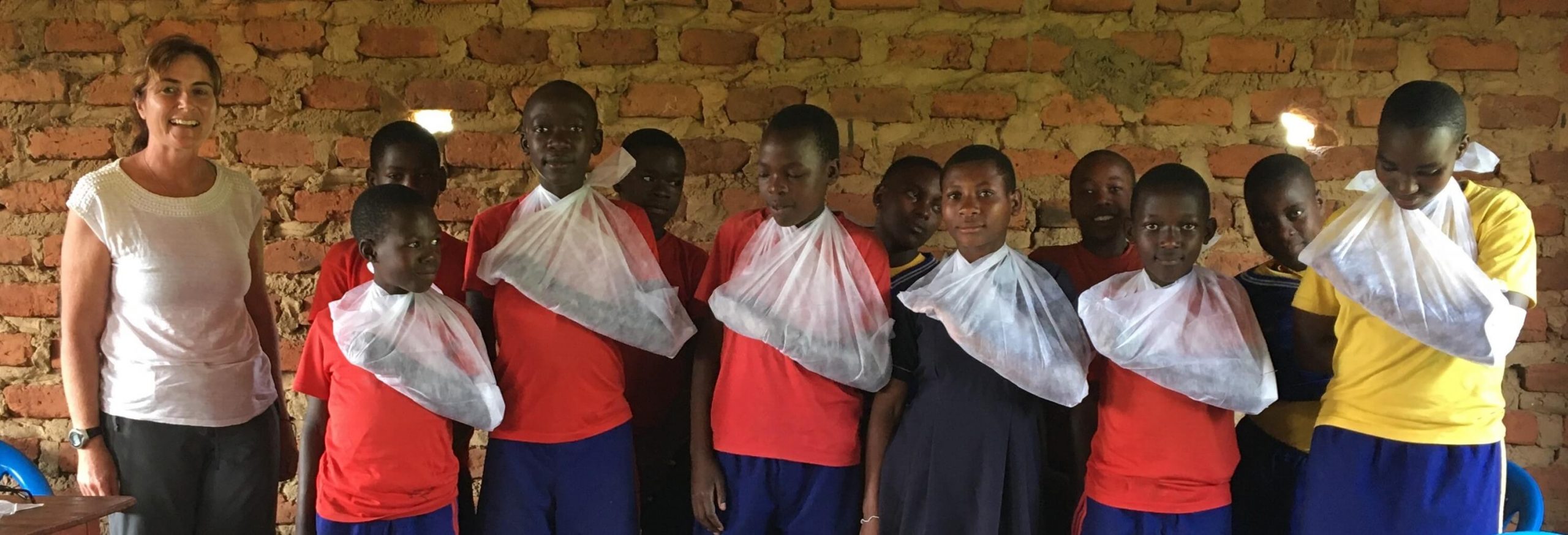
I’m currently raising money to get a solar panel fitted to the Uganda health clinic I visited so they can have lighting for the safe delivery of babies at night.
If you would like to donate, please follow the link to my just giving page by clicking here.
I will write more about my adventures in the next newsletter.
Take care and stay safe.
Support Uganda Health Clinics
Help fit a solar panel so they can have lighting for the safe delivery of babies at night.


